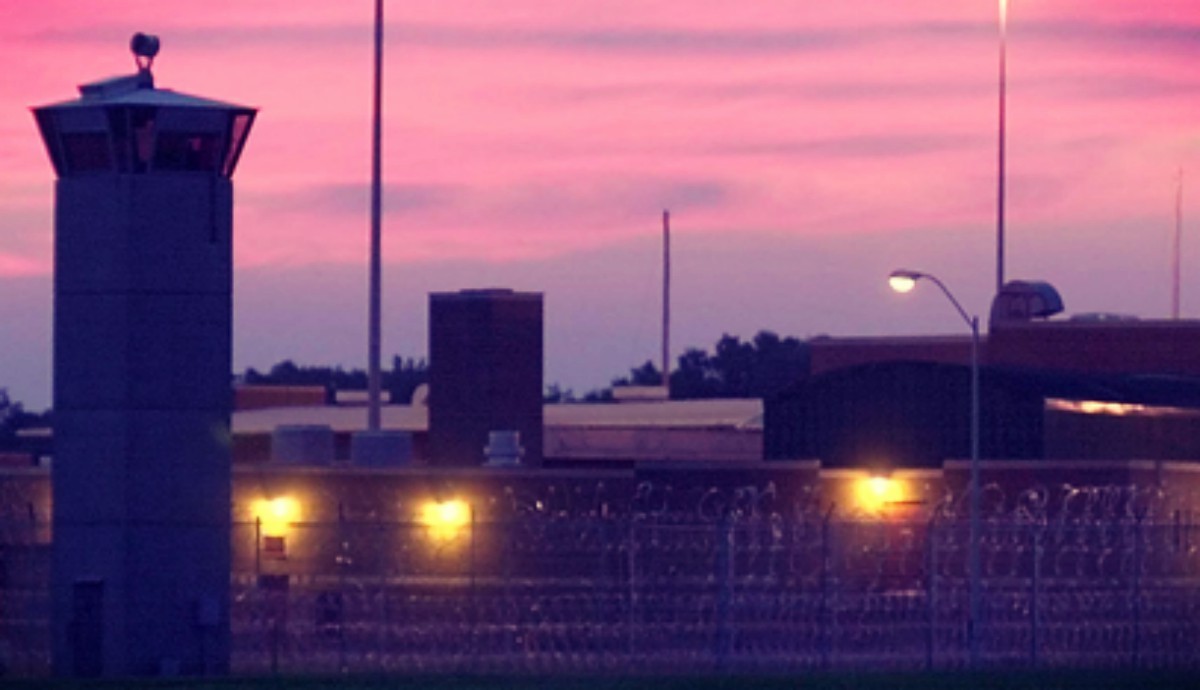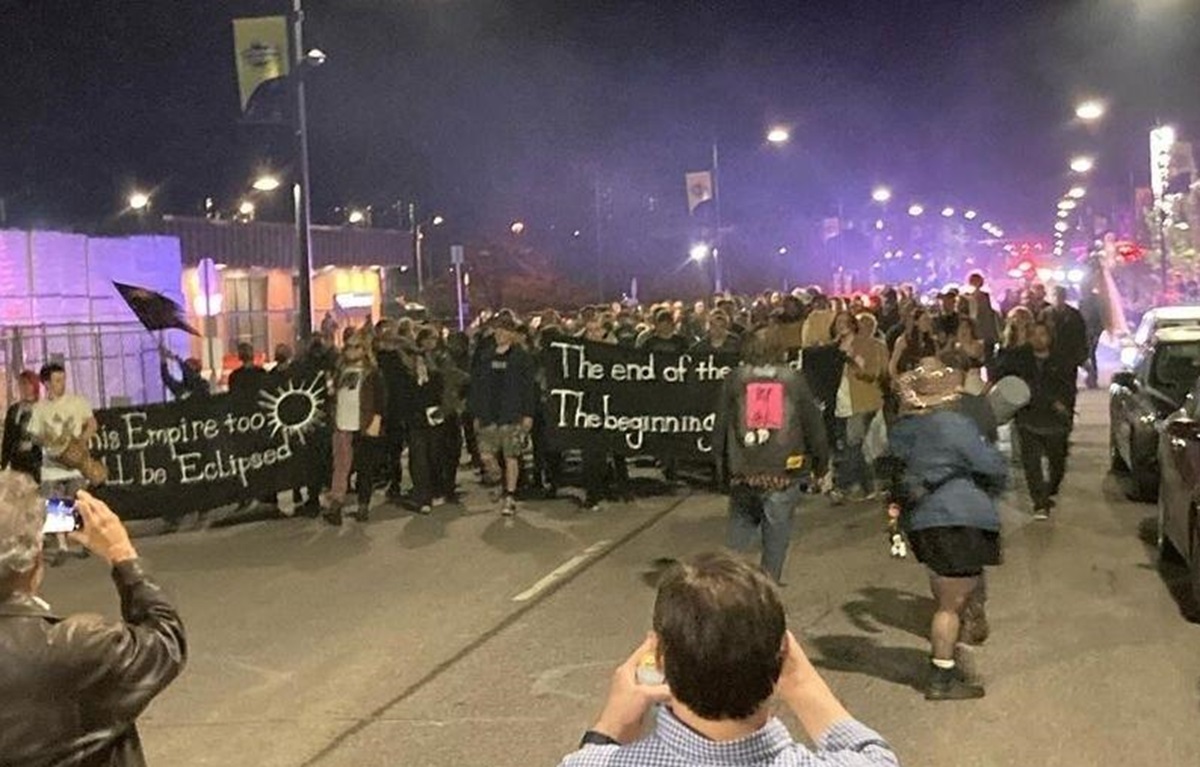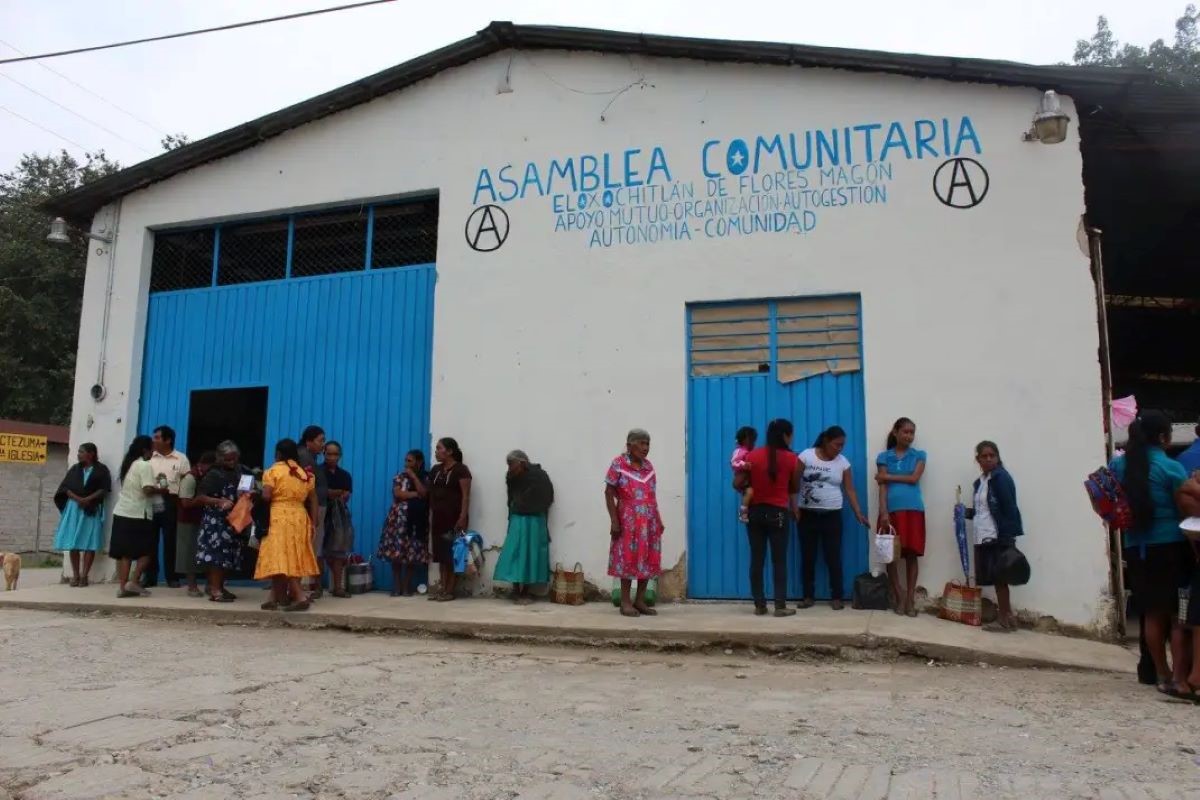Filed under: Featured, Incarceration, Interviews, Midwest, White Supremacy

In November 2017, Shaka Shakur underwent a successful 12-day hunger strike at Wabash Valley Correctional Facility near Vincennes, Indiana, after which he was moved to a non-camera cell and most of his confiscated property was returned.
Starting the morning of November 3, Shaka Shakur, Cortez Wheeler, and another person who goes by Martins refused to eat and made demands of Wabash Valley Correctional Facility. According to Shakur, “Cortez’s issues were addressed and resolved the next day so he started to eat,” and due to medical conditions, Martins “was advised by medical that he should eat.” Shaka decided to continue until his demands were met.
Recounting his demands, Shakur states, “I wanted to be placed in non-camera cell. I wanted to be moved out of the SHU where the August 31st alleged assault happened and where I was being subjected to retaliation. I wanted my trays to stop being tampered with, for incoming/outgoing mail to stop being tampered with, censored and/or disappeared.” Explaining the demands regarding mail, he adds, “I just recently found out they threw away my daughter’s school pics that came in the mail!”
IDOC Watch, Kite Line Radio, and other groups shared news of the strike and encouraged supporters to call in to Wabash Valley to ask about the hunger strike.
According to a letter from Shaka Shakur dated November 20, “I know the state/I.D.O.C. had to be getting a lot of attention just by the way they kept trying to persuade me to eat when I was prepared to go for at least two more weeks. So again I send a strong shout out and clinched fist salute to all the people…that showed me/us love and solidarity.”
Shaka has been imprisoned by the Indiana Department of Corrections on and off since 1982 when he was 16 years old. For the past 12 years, Shaka has been held in lockdown for 23 hours a day. Where the River Frowns wrote to Shaka to ask about his recent hunger strike and current conditions at Wabash Valley. Below are his responses from a letter dated December 11, 2017.
WTRF: Tell us about your recent hunger strike.
Shaka: My strike officially began on 11/3 and ended the evening of 11/15 after I was removed from the secure housing unit (SHU) and moved to CCU [Closed Custody Unit] into a non-camera cell.
On Tuesday afternoon [November 14] I was called out by Superintendent Brown and Assistant Superintendent Littlejohn where my issues were discussed. I explained I wanted to be moved off of the SHU unit as a first step towards moving me out of this facility altogether. I also wanted out of a camera cell and moved into a “regular” cage. On Wednesday morning the Superintendent was back and agreeing to move me, etc., etc., if I ate.
I was moved a few hours later to a regular cell with a window and better access to the law library and research materials. My visitation situation is also better. Even though it’s still non-contact, they’re no longer being videotaped/recorded.
This represented my 4th hunger strike in 25 years and my 3rd serious one where I went 2 weeks at least with absolutely no food or cheating. The longest I’ve went is 23 days.
WTRF: How did you feel during the strike?
Shaka: To be honest I felt strong on this one—probably because I was/am so pissed about certain issues. I felt it in my kidneys because I have some kidney issues (cyst), but I had at least two more weeks in me and in hindsight regret coming off. I should [have] followed my first mind and stayed on it ’til they returned my five books of stamps and transferred me or got a court order to force feed me.
I lost approximately 20 pounds on my strike, and on my 11th day they came and took blood. I guess to verify I wasn’t cheating. So now I’m just trying to rebuild my body and muscles back up.
I had major cervical surgery in 2015 for degenerative disc in my neck (it comes from sleeping on these concrete and steel bunks w/out a pillow for years) and they didn’t finish the job and now it’s come back causing muscle deterioration and atrophy in my right arm and right hand. The strike accelerated it because I really didn’t have the muscle to sacrifice.
I’ve put back on about 10 pounds since ending my strike. I’m having some muscle issues, but as I stated I have a pinched nerve in my neck/upper back area (T1-T2 vertebra) that I’m trying to get treated for.
WTRF: Why do you think the strike worked?
Shaka: The strike worked because of outside support/attention. Trust me, without it they will let you starve to death. They only work with outside support. I’ve watched people go for 25, 30 days and accomplish nothing.
In 1991 when the Maximum Control Complex (MCC) Westville first opened we organized a mass hunger strike to coincide with the remembrance of the Attica rebellion.
The strike lasted for 37 days until they got a court order to force feed the last five of us. I only went 20 days and we started out with about 30 plus people with a hardcore of 9 that ended with the 5 being force fed. We had a ton of movement support with people holding press conferences, protests in front of the prison, etc.
I don’t know if you’re familiar with “The People’s Law Office” and the “Committee to End the Marion Lockdown“—both out of Chicago. They were instrumental in shining the national spotlight on the horrific conditions of that place. If you haven’t already read it—see if you can find this book “Out of Control: A Fifteen Year Battle Against Control Unit Prisons” by Nancy Kurshan.
It was these struggles in part that helped put the Indiana prison movement on the map and made the MCC the first state prison in US history to be condemned for human rights violations by an international human rights organization which was Human Rights Watch. That report should still be online.
WTRF: One of your demands was to be removed from the unit where an alleged incident between you and a guard happened in August. Do you want to say anything about that?
Shaka: In regards to my charges from the Aug 31st incident I’m charged with the following:
- Aggravated Battery (level 3 felony)
- Prisoner Possessing Dangerous Device or Material (level 5 felony)
- Battery Resulting in Serious Bodily Injury (level 5 felony)
- Battery Against a Public Safety Official (level 6 felony)
I was appointed the public pretender Douglas Followell, 812-268-3415, who is yet to contact me, respond to any of my letters or take any of my calls! We are discussing now doing an organized call in to his office to let him know that (1) I’m not alone and (2) I’m not to be railroaded!¹
We are trying to raise funds for a lawyer though, and I’m to discuss with some IDOC Watch comrades some ideas for fund raising and/or defense committee.
The only thing I can really say about the alleged incident or leading up to it is this. For almost a year, a group of COs [Corrections Officers] and administrators had been spearheading a campaign to label me a “snitch” and thereby put my life in danger. Then on top of that I had some who were trying to get me kicked out of the ACT program through provocation. This was/is a step down program that can facilitate your release back into general population. When I didn’t take that bait a CO, M. Foster, just outright lied and filed a false charge of threatening on me after I filed harassment charges against her. The very next day she retaliated and got me moved out of the program.
I got moved to where one of her main friends work and the blatant tampering with the trays and mail and personal info is ratcheted up. The smear campaign, taunts, racial b.s. all increase as well as false reporting.
Generally because I’m quiet and laid back (because all I do is lay back, read or write) and didn’t respond verbally they felt emboldened to increase their attacks.
Then they threatened my family—began spreading info that my wife had been the victim of a retaliatory murder in Gary. You actually had COs and coward-ass collaborating inmates pushing this. I was on phone restriction so I couldn’t call home and check, they were stealing or withholding my mail. So I had to pressure the administration to do a welfare check on my family. Can you imagine being at work and getting a call from a chaplain or internal affairs detective saying we are calling to verify a Ms. [So-and-so] as killed, blah blah?
WTRF: Could you talk about your conditions now?
Shaka: Since I’ve been moved to this unit I really only have a problem with one CO who has started playing with my trays after we had some words. He really had already been doing stuff (kid shit) and I just ignored him, but now he is getting more bold every time he works. I’ve been just documenting it and plan to make a formal complaint. But overall it’s better than where I was.
My security is still tight. I can only be let out “my” cell with an escort of a sergeant and 2 or 3 other guards and even then they have to videotape it, have on stab resistant vests and helmets. It’s overkill and really unnecessary, because in general I don’t bother you, if you don’t bother me and if someone makes the decision to do something—none of that sh** is going to prevent it!
The bottom line though is it’s the culture of this facility. I think 2017 represent the year with the most serious assaults on staff since this place opened. Why? Because people are fed up with the treatment, the disrespect, the lack of any real programs, nothing to do all damn day and they instead taking, taking, taking. This doesn’t even factor in the racism, cultural ignorance or lack of professional training.
WTRF: Anything else you’d like to add?
This is my second bid.² I first came to prison at 16 years old in 1982-1997, and back then you had to get a knife, get a man or go to protective custody. Even today a lot of these people couldn’t work at Pendleton or Michigan City without being seriously assaulted.
I grew up in this shit where racism was raw and in your face. Where we had to fight back, go to war just to live and be treated like human beings. Where friends lost their lives or are never getting out of prison.
I’ve been in solitary, on 23 and 1 lockdown,³ for 12 years. A/S [administrative segregation] and D/S⁴ [disciplinary segregation] officially—mostly for possession of and suspected trafficking in (never proven) cell phones. Non-violent offenses. 12 years for non-violent offenses! Unofficially it’s really about one’s politics, activism and influence. The ability to reach ones, organize, mobilize, etc. This is why the snitch label is an attempt to discredit, undermine and neutralize—clearly underestimating the collateral damage that is going to come with that.
So the only statement I want to make or point I want to get across is this. I’ve been in prison all my life. I got out in ’97, started dating a woman who had just left a physical abusive relationship. After the two of us were ambushed by this abuser on a dark side street, I went back to prison for 27 months. I went home again, this time trying to heal and recover from 17 years of physical and psychological torture only to have my only biological child murdered the day before my birthday. PTSD is putting it mildly—okay. So you take all of that and add 12 fresh years of solitary.
We need people to understand the magnitude and seriousness of these types of situations, how people are being physically, emotionally, and spiritually destroyed/devastated. Each time I’ve been let out, especially the first time—despite being political, despite being active in the movement and in spite of having a support structure—I was f*cked up, damaged and ill prepared. While I’m responsible for my own actions and choices, the DOC did nothing to prepare me for society—nothing. And that is the problem. The people have to hold these people responsible instead of just handing over their tax dollars.
The people have to also take responsibility for building our own support structures, our own nurturing communities for womyn⁵ and men that are returning to the streets. We need real and genuine inside/outside working relationships and networks. You would be surprised at the mountains we can move. That sometimes the impact of a simple letter, phone call, card, march, rally, loud ass bullhorn aimed in the right direction can have.
I’ve seen it. I’ve witnessed it. I’ve been part of it. Right now certain areas in the state is pregnant with potential—it’s up to those that’s serious to facilitate, to midwife, to usher in the birth of a new day and a new era—on both side of the wall.
Far as this case, if I don’t expose it or rally people behind it/me, they’re going to take me out to this small ass county with probably less than 1% so call minorities and ½ the population have some connection to this modern day plantation—and legally lynch me. Which is what they do. They commit all kind of kkkrimes⁶ in the dark here and soon as you fight back they play the role of the victim and victimize you another way all over again.
WTRF: Thanks, Shaka!
Some people throughout Indiana have already made statements of solidarity with Shaka Shakur regarding his most recent charges through a series of banner drops throughout Indiana in late November. As of this writing, Shaka’s next court date is scheduled for February 21, and his trial begins March 28, 2018.
According to an IDOC Watch blog post, Shaka has already been penalized within the prison system without having had a trial by making him “liable for $3,000 of undocumented and/or unrepresented medical expenses” and depriving him of good time–“effectively adding 8 ½ years to his sentence.” IDOC Watch fears that the IDOC is “innovating new techniques of oppression,” and that if Shaka is found guilty, “intimidating inmates with the possibility of unilaterally extending sentences will become the new strategy for blocking resistance.” Supporters can follow the IDOC Watch blog for the latest on this case.
1. Railroaded: convicted quickly because of pressure or other circumstances. In this case, Shaka fears an unfair trial as a black prisoner in Sullivan County, IN, where the population is 21,000 (94% white) and many potential jurors are in some way connected to the prison.
2. Bid: a prison term with new charges
3. 23 and 1 lockdown: 23 hours per day in a cell and 1 hour out (could be to shower, for rec time, etc., depending on the day)
4. A/S and D/S: two ways of naming the situation of prison workers locking someone into an isolated cage. Other related terms include the Secure Housing Unit (SHU), seg (short for segregation), and the hole.
5. Womyn: a way to spell “women” that has been adopted by some feminists to avoid ending the word with “men.” Other variations include womban, womon, and wimmin.
6. Kkkrimes: a spelling trend among prisoners and others that links the state and others with authority to white supremacy. Other words with this spelling pattern include Amerikkka, kkkops, and kkkapitalism.





